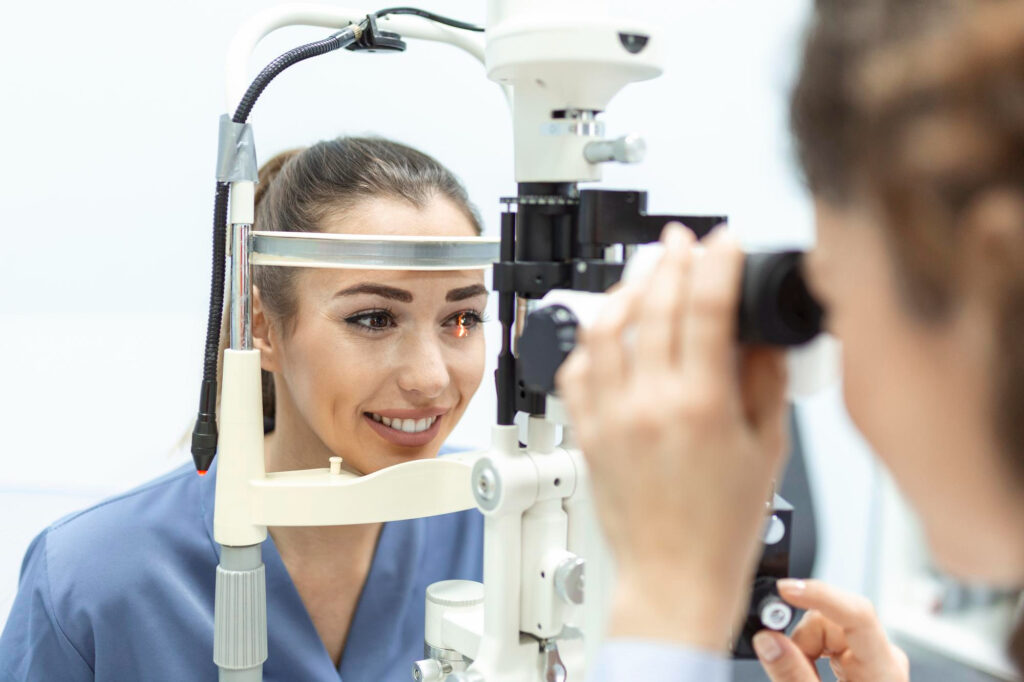The human eye is a remarkable organ that lets us see the world in vibrant color and clear detail. But in order to see, several intricate systems work together to convert light into electrical signals that our brain interprets as visual images.
A healthy lens should be clear. But for cataract patients, that’s not the case—their lenses are cloudy, mimicking a smudged photo lens or a foggy windshield. Colors are muted, objects are hazy, and their sight is blurred or haloed. This is called a cataract: a diagnosis that requires cataracts treatment through surgery to regain vision again. This happens naturally as we age.
Your ophthalmologist will recommend removing the cataract when it lowers your quality of life. This involves making a small incision along the side of the cornea to remove the damaged lens and replace it with a new one. Our eye care center in Venice details what to expect when you need surgery for cataracts.
**The advice in this blog is for general informational purposes only and may not be suited for your exact insurance plan and cataract needs. Therefore, consulting a qualified healthcare professional for personalized advice and treatment is essential.
Before Surgery
Before cataract surgery, it is important to have your eye health examined and determine if your cornea has any thinning or scarring, as those both increase the risk of complications. In preparation, you will be given specific pre-surgery instructions on what medicines you can or cannot take before the procedure. You may also be prescribed eye drops to prevent or reduce swelling and irritation.
During Surgery
You may be advised not to consume food less than 6 hours before the surgery. When the time comes for surgery, it is done in our outpatient ambulatory surgery center in Sarasota. Depending on your vision option selection, you will begin the protocol for traditional or micro-incision cataract surgery (otherwise known as laser surgery). Before both surgeries, the surface of your eye will be numbed, you will remain awake, and you will receive a mild sedative or anesthetic to relax.
Traditional Surgery
In most instances, traditional surgery is the common and direct route for cataracts. Through phacoemulsification, the surgeon creates small incisions in the cornea to shift a tiny device that emits sound waves to break up the cataract. It also suctions away small pieces of the damaged lens in the process, which preps the eye for an IOL.
Side Effects
- Swelling of the eye internally or externally
- Infection
- Bleeding
- Blurred vision
- Infection
- Vision loss
- Retinal detachment
- Retinal swelling
- Lens shifting around the eye
- Glare, shadows, or halos
Laser Surgery
A more modern and effective technique, laser surgery, uses a laser to map a 3-D rendition of the eye to make precise incisions in a matter of seconds. Along with making microscopic incisions, the high-tech laser precisely fragments cataracts—which is especially helpful for cataract patients with dense cataracts.
The first step in this procedure is dilating the eye. It is an immediate surgery, only taking about ten minutes. Some slight pressure may be felt, but your eye will be numbed.
After Surgery
Post-surgery, it takes anywhere from days to weeks to fully recover. It is essential to follow your ophthalmologist’s exact instructions to ensure perfectly healed eyes. At a glance, you can expect to adhere to these rules following your surgery:
- Diligently use antibiotic eye drops for four weeks after your surgery.
- Keep your eyes clean from dirt and soap at all times.
- Avoid rubbing, pressing, or scratching your eye. Glasses may be prescribed for further protection.
- Wear a protective eye shield while you sleep.
- Listen to your ophthalmologist to perform daily activities like exercise or driving safely again.
The Clear Choice For Cataract Treatment: Center For Sight
Don’t let cataracts cloud your future. Request an appointment with our cataract experts in Venice, Florida, today and take the first step towards clear and vibrant eyesight!







